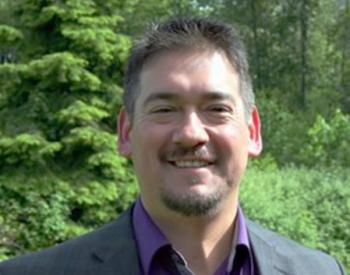Image Caption
Summary
Windspeaker.com Contributor
After decades of lobbying the provincial government for a cut of gaming revenue, funds will start flowing to First Nations bands in British Columbia this September.
“It’s a really important historical thing that has happened here in British Columbia,” said First Nations Gaming Commissioner Robert Phillips. “I think it’s one of the first steps in repairing the impact of colonialism on First Nations.”
Phillips is an executive member of the First Nations Summit (FNS)and a member of the First Nations Leadership Council, which brings together the BC Assembly of First Nations, Union of British Columbia Indian Chiefs and FNS.
An agreement negotiated with the provincial government and signed on Aug. 9 formed the BC First Nations Gaming Revenue Sharing Limited Partnership. It gives First Nation bands under the Indian Act access to seven per cent of net gaming revenues. The 25-year agreement will lead to about $3 billion for First Nations.
It’s hard to believe that up to this point, and despite decades of First Nations leadership trying to make it otherwise, bands in B.C. weren’t benefitting from gaming revenue like their counterparts throughout Canada and the United States.
Phillips says he recalls numerous conversations with former Liberal Premier Christy Clark over the years about gaming revenue sharing, which ended with her “basically laughing in our face in terms of not wanting to go there.” Clark always drew on smaller existing revenue sharing streams, such as forestry and mining, for reasons why gaming revenue was off the table.
However, when the Clark government fell in 2017 to be replaced by an NDP-Green Party coalition, opposition parties which had supported the sharing of gaming revenue with First Nations, new doors were opened.
“With the new government coming in we had an excellent dialogue on the (United Nations) Declaration (on the Rights of Indigenous Peoples). Then one of the key issues that we thought of and we discussed with the Premier ((John Horgan) right away and Scott Fraser, the minister of Indigenous Affairs for British Columbia was gaming. We got right on it and they were receptive,” said Phillips.
About a year’s-worth of negotiations took place. After looking at other existing gaming revenue sharing models across Canada, the Ontario model “seemed to be the best fit,” said Phillips, and was adapted for B.C.’s needs.
The two-year interim agreement that is now in place allows the 198 bands recognized under the Indian Act access to close to $200 million. The distribution formula sees 50 per cent of the base funding divided equally among bands; 40 per cent allotted based on registered population; and 10 per cent set aside for geographically remote communities.
The agreement also allows bands to bow out of participating. Phillips says some bands don’t want a share of gaming revenue. Bands have three years to apply. If the money is unclaimed after that time, it will go into a fund that can be accessed by all.
Gaming revenue can be used in a variety of ways with communities setting their own priorities. However, money cannot be given directly to individuals as per capita payments.
“Gaming revenues is an excellent source of funding that will impact the band or community, not only the local economies, but more importantly the housing shortages, promoting health and wellness and preserving and strengthening Indigenous culture, language, heritage,” said Phillips, who expects the money to make a difference on the ground right away.
Phillips notes steps have been taken to ensure the federal government does not view the gaming revenue as own source revenue for bands and in so doing lessens the dollars they provide for programs and services.
“A lot of people (could) look at this as if (they’re) giving something to the First Nations. But if you look at reconciliation and the colonial period of the last 150 years, what I’ve been saying is that if we have prosperous local, regional First Nation communities, that means there’s going to be prosperity for rural B.C., southern B.C., coastal B.C., especially northern B.C. that need to rely on other economies besides the resource sector … This would bring in new revenues for those regions. And I think that’s a key important aspect,” said Phillips.
Phillip sees the agreement as a stepping stone to allow First Nations to operate their own casinos. Presently there is gaming on four First Nations lands—Casino of the Rockies, Chances Cowichan, Chances Squamish and Chances Salmon Arm—all of which are operated by the BC Lottery Commission.
“We hope to get into First Nations casinos, those that have the opportunity to do so. There are a number of First Nations who have been trying for decades,” said Phillips.

